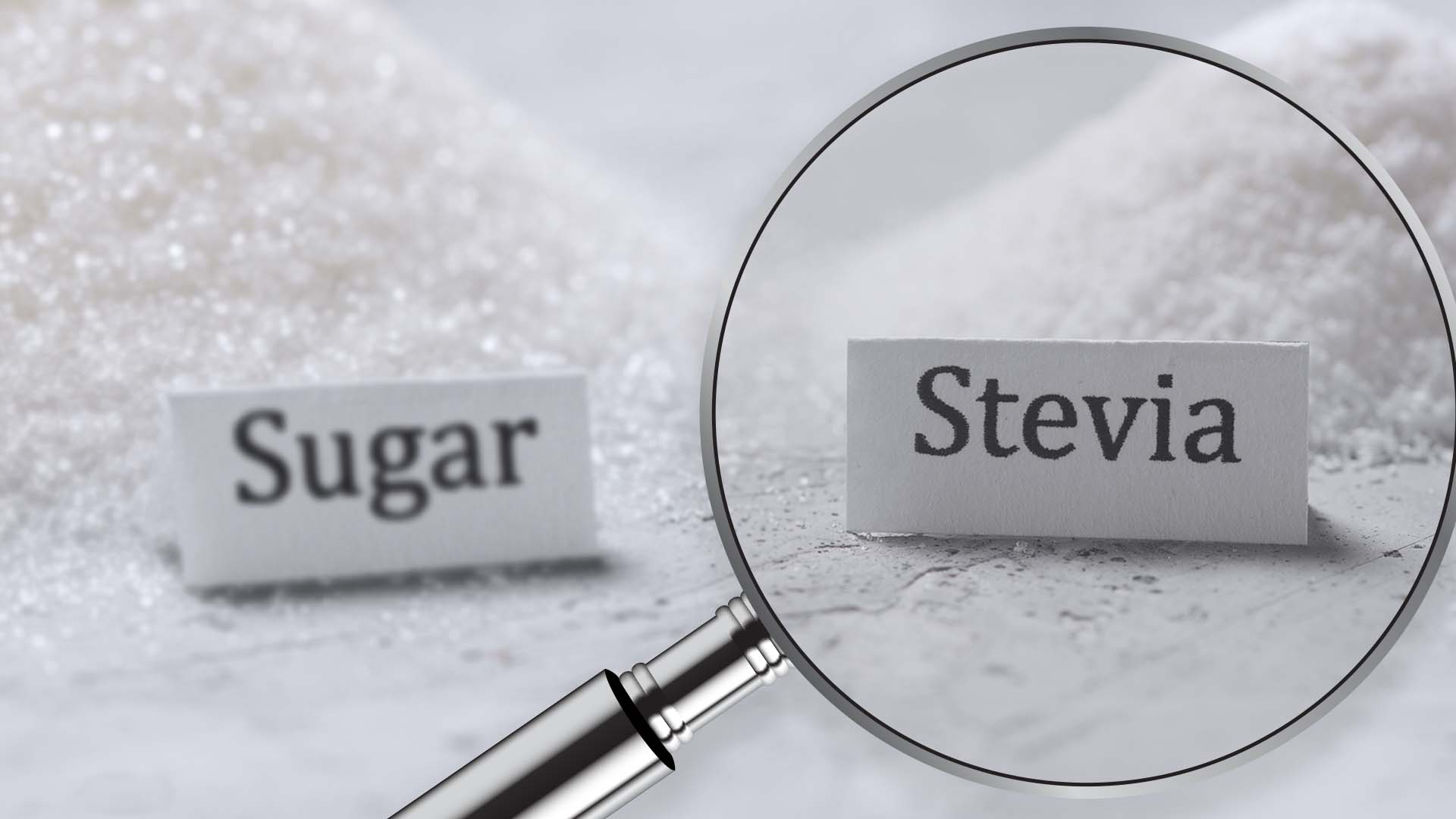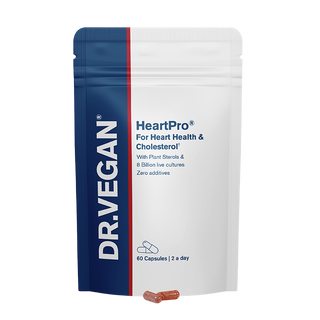Stevia, Artificial Sweeteners & Insulin Resistance

Why do those electrolytes, collagen gels, turmeric shots, or green, vanilla and chocolate meal replacement shakes taste so sweet? It's because they include artificial sweeteners or stevia that are up to 350x sweeter than sugar, and which have no long term benefit for weight loss as an alternative to sugar. New studies now also show that while they don't lead to an insulin response in the body, the may alter the gut microbiome which in turn can lead to insulin resistance and pre-diabetes. The World Health Organisation (WHO) has officially warned consumers against using non-sugar sweeteners for weight control. Just because a sweetener comes from a plant, it doesn't mean it's good - sugar is a plant, and isn't good. Hemlock is a plant and is poisonous!
Here we explain sweeteners, the latest research on the impact of sweeteners and stevia on the gut microbiome, the risks of artificial sweeteners, and what to look out for in meal replacement and protein shakes which include stevia.
Are sweeteners bad?
The consumption of artificial sweeteners like sucralose has been a concern for a long time now given their growing use in weight loss foods and drinks, gummies, hydration and electrolyte drinks, liquid supplements, and meal replacement and protein powders.
The debate culminated in May 2023 with the World Health Organisation (WHO) announcing - after extensive research - that using sweeteners "does not confer any long-term benefit in reducing body fat in adults or children" and, worse still, "there could be 'undesirable effects' such as an increased risk of type 2 diabetes, cardiovascular diseases, and mortality in adults." Learn more about the 10 signs of diabetes to look out for, and below we explain how sweeteners increase the risk of diabetes.
Not all sweeteners or sweet things are bad. However the sweeteners the WHO is referring to include those found in some of the best-selling electrolytes, collagen and turmeric shots, meal replacement and protein shakes, including stevia and stevia derivatives, saccharin, sucralose, aspartame, advantame, cyclamates and many others.
One concern is that companies state on their packaging 'No sugar or artificial sweeteners', yet their products can contain stevia or stevia derivatives, a plant-sweetener that is extensively used in food products across the world. Below is the ingredients list of a leading green meal replacement powder, which also claims it is 'free from artificial sweeteners'. However it includes 'stevia', a plant-sweetener which is 300 times sweeter than sugar and research shows it can disrupt the gut microbiome and may lead to raised glycemic levels and ultimately insulin resistance.
Sweeteners and the gut microbiome
There are a growing number of studies into the impact of sweeteners and the gut microbiome and the risks to insulin resistance and diabetes. Despite the world becoming so much more aware of the health risks caused by sugar in the 1970s, and food manufacturers switching to sweeteners, levels of diabetes and obesity haven't fallen but instead have grown to epidemic levels.
One recent study, published in 2024, into the effects of using Neotame and Stevia instead of sugar in sweetened biscuits on appetite and endocrine response among overweight adults, showed there was no change in appetite when using the sweeteners, but that Stevia and Neotame can reduce insulin and glucose response. A reduced insulin response is also known as 'insulin resistance', where the body's cells don't respond to insulin, leading to higher blood sugar levels. Pre-diabetes is where the blood sugar levels are higher than normal, and insulin resistance generally precedes pre-diabetes. Learn more in 'What is insulin resistance'.
Another extensive study, published in 2022 - 'Personalised micobiome-driven effects of non-nutritive sweeteners on human glucose tolerance' - looked at the impact on the gut microbiome and glucose response from NNS (non-nutritive sweeteners) including Saccharin, Sucralose, Stevia, and Aspartame. The common notion has been that NNS are metabolically inert, meaning they don't impact tolerance to blood sugar. However the study found that all four of the sweeteners tested significantly and distinctly altered the microbiome, that people's gut microbiomes respond differently to sweeteners, and that NNS can lead to an elevated glycemic response. High glycemic responses are where sugar levels rise rapidly after eating and over time with persistent use may lead to insulin resistance. The findings show that stevia may have the same impact as artificial sweeteners.
Graphical Abstract of Effects of Sweeteners on Glucose Tolerance

Image Credit: Cell.com
What are sweeteners?
Sweeteners are substances used to enhance the taste of food and beverages without adding significant calories. They come in various forms, including plant-based options and artificial options. Sweeteners are found in thousands of food products from snack bars, chewing gum, biscuits, cakes to supplement powders.
Plant-sweeteners, such as stevia and xylitol, are derived from plant or tree sources and offer an alternative to traditional sugar. Sweeteners can be 200-350x sweeter than sugar.
World Health Organisation's advice on sweeteners.
Artificial sweeteners, such as aspartame, saccharin and sucralose, are often positioned as healthier ‘artificial’ options to sugar. They’re synthetic compounds designed to mimic the taste of sugar and are more commonly found in fizzy drinks and processed foods.
You may also enjoy reading:



















